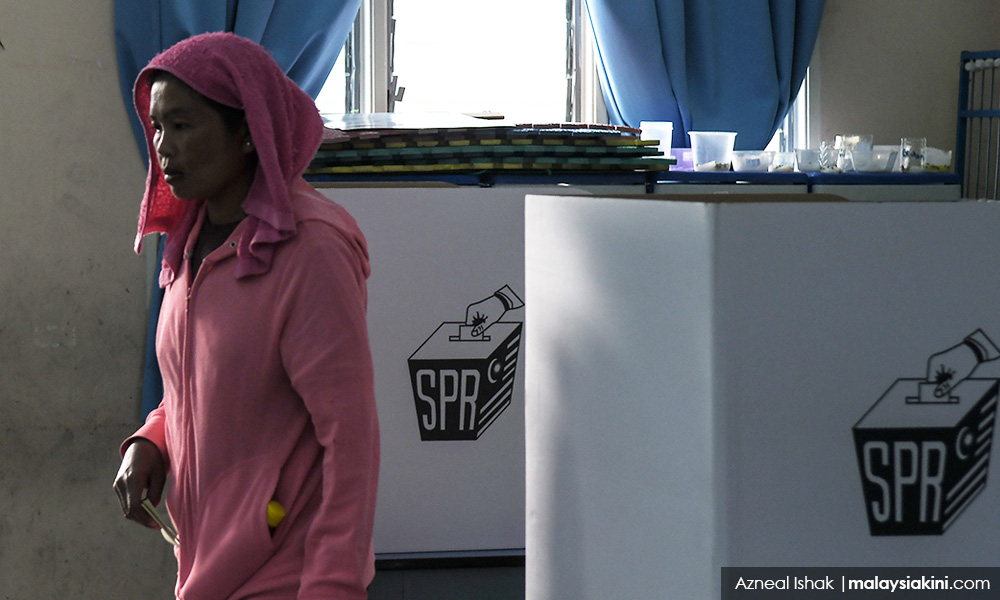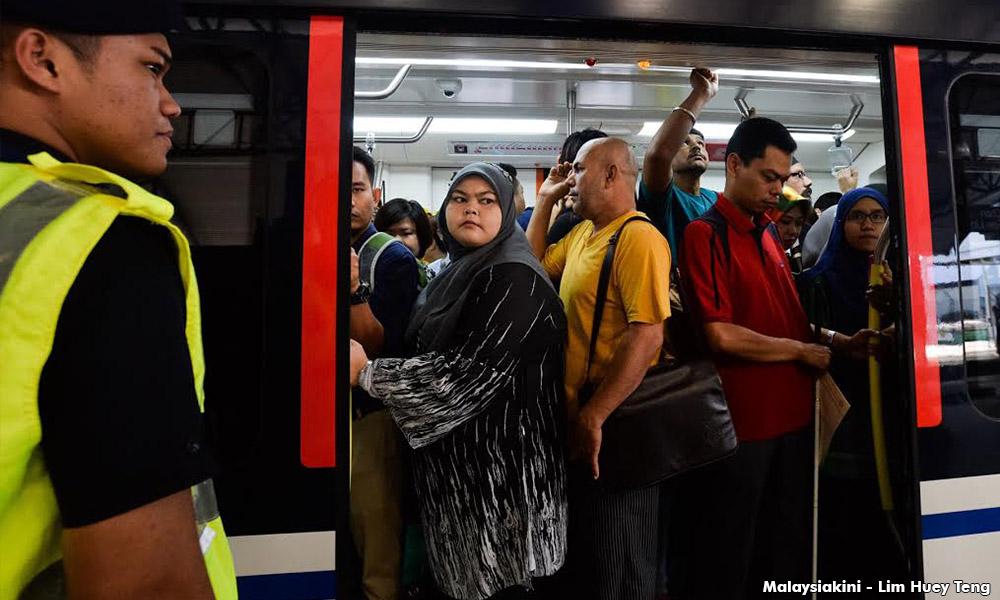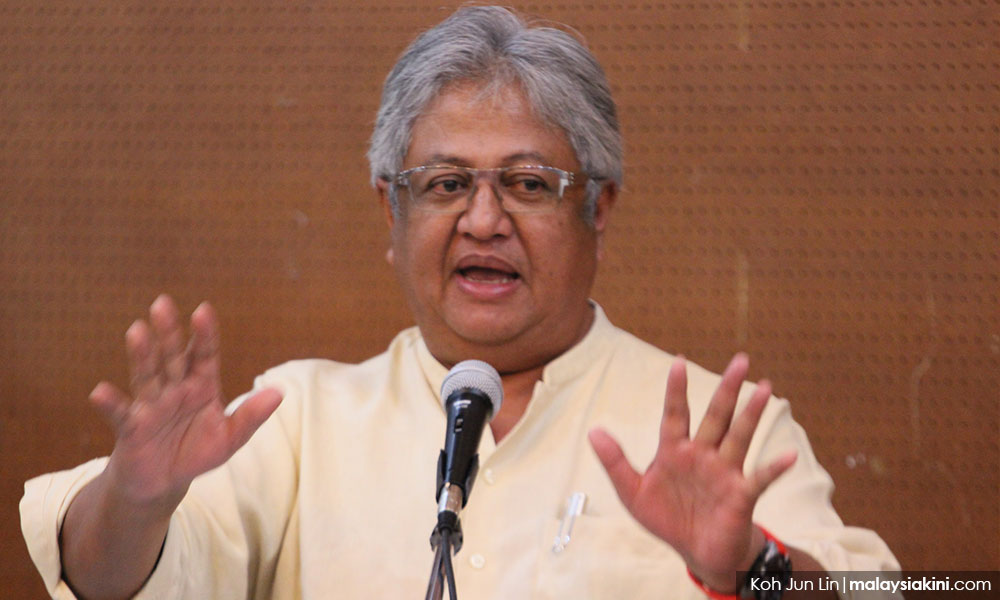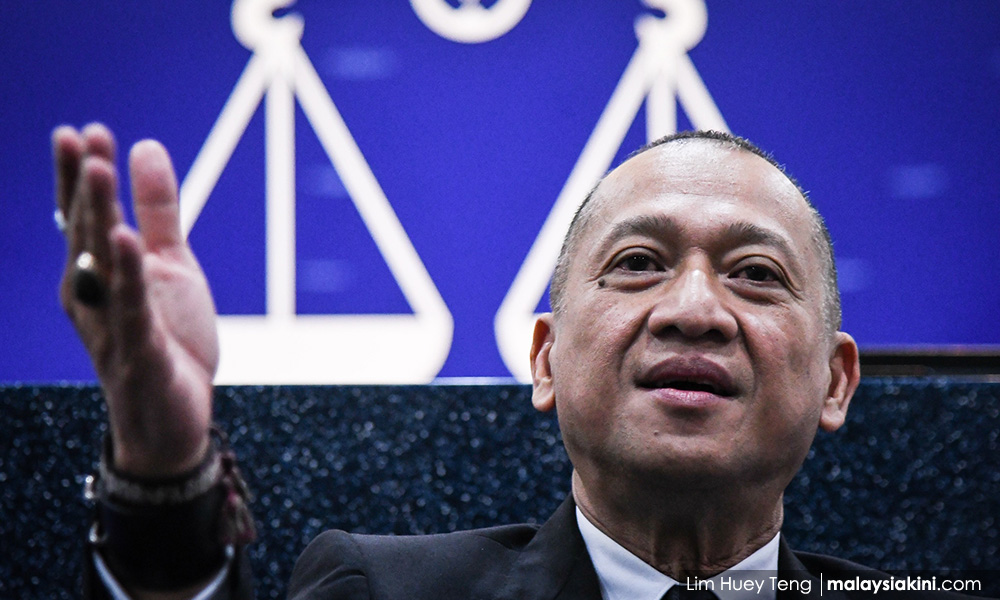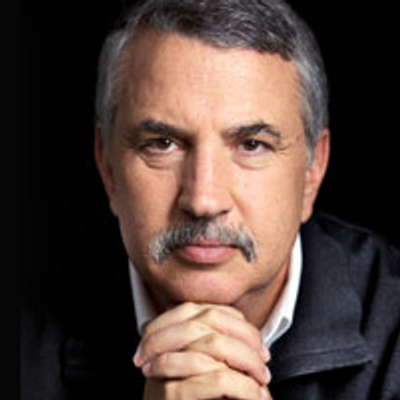April 14, 2019
Musings on a nation gone half-mad
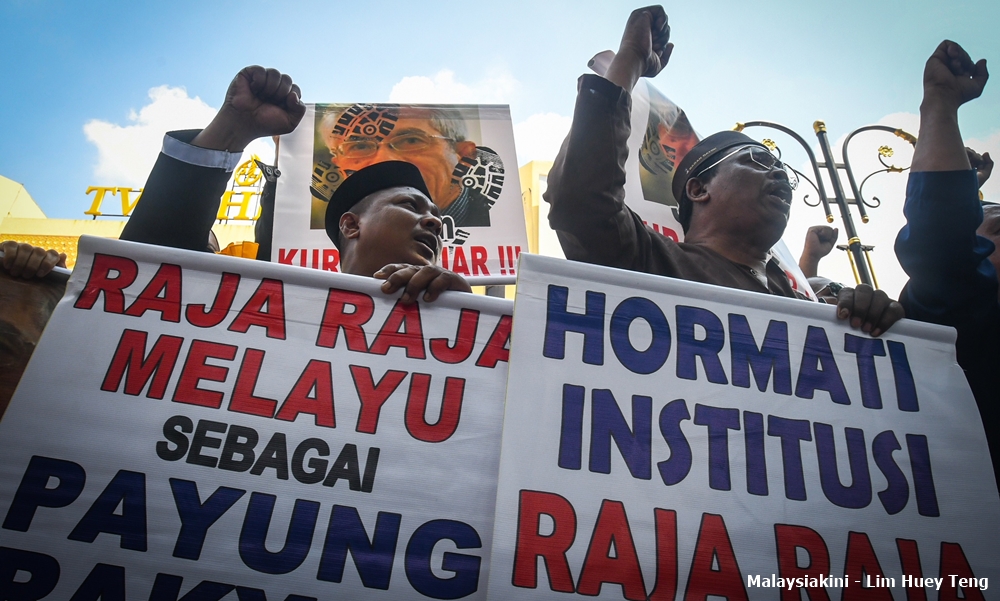
COMMENT | Like all of you esteemed readers, I sometimes do not know what to make of the world we are living in. Especially that of our beloved country. But think about it, we must.
The wealthy and the powerful are having a field day, during the remains of their day perhaps, in a world ever changing wherein information wants to be free and the cybernetic world can help the maddening masses bring mad leaders down. In my half-wide awakeness, these past few days, I thought of these:
Malays and the syndrome of Harry Houdini
Reading about the state of things, I see academics continue to sell their soul to the forces of idiocy, to the deep state of decadence guised as traditional authority! Academics loyal to the power of hegemonic-idiocy, possessed, diseased hearts and minds, unfit to be teachers of ethics in society.
But that is their right to be intelligent or to be ignorant. Their right to give advice, to make things better, or to make matters worse. Their right to be ideologues, intelligentsia, or purely intelligent beings who will not sell their soul for any pound of gold. To be a sophist or to be a Socrates.
In my musings, I thought of these: No society will need monarchs to protect it, if each member takes pride in being a natural-born aristocrat with a free spirit.
Malays are too slow in releasing themselves from the shackles of feudal fear and mentality. Move faster. Question authority! Malay feudalism is merely a social construct borne out of a historical accident, lasting as long as the rakyat continue to surrender their mind, body and spirit.
Modern-day slavery continues to define our economic condition. The system of social injustice prevails, like a cultural logic of late capitalism gone illogical.
There is this cultural disease in Malaysia, manufactured. It is self-fear. Like a selfie of a one’s fear. Fear of other races instilled in the Malay mind is for the benefit of the powerful, political, and the feudal. For survival.
Malaysians must understand that today’s war is not about race and religion, but about class: of the powerful versus the powerless. Of the have-a-lots versus have-nots. A long war ahead, to redefine the way of the world and act upon it.
Too much bad history has plagued this most-obedient-people in the world. Only when Malays are taught critical reasoning, critiquing feudal ideology, and “liberation theology” will they be free.
The political and the feudal deep states have been using the old British colonial strategy of divide and enslave in order to maintain the status quo. In the Malay tradition, the idea of blind loyalty to feudalism must be dismantled. It is unfit for Malay intelligence of the Industry 4.0 era, especially.
In all cultural traditions, there are enabling and disabling aspects. Extract, reflect upon, revise and reconstruct those which are useless to the advancement of human cognition and liberation.
There is now a battle of cognition over culture in the Malay psyche. I presume a liberated Malay mind will never kowtow to any monarch, politician, ayatollah, or any master of slavery. We must end this form of mental imprisonment.

We must, especially, set the youth free. But freedom for Malay youth does not mean freedom to join Mat Rempits or neo-Nazi groups. That will be suicidal freedom.
There is this malaise in the south. This idea brought me to a related notion of hegemony and false consciousness. “Bangsa Johor” is an invented “nation” living in an oxymoron: being fearful of feudalism, yet showing absurdist freedom.
Today’s grand hypocrisy
In countries ruled by “Muslim monarchs,” you seldom find true Islam, mostly hypocrisy. Abuse of Islam is everywhere. Look around. In Malaysia, the more politicians claim Malay-Muslim parties will defend and protect Malay-Muslims, the more you find national robbery done nicely. Even the Pilgrimage Fund, the holiest of holy investment body, got robbed holistically, done religiously.
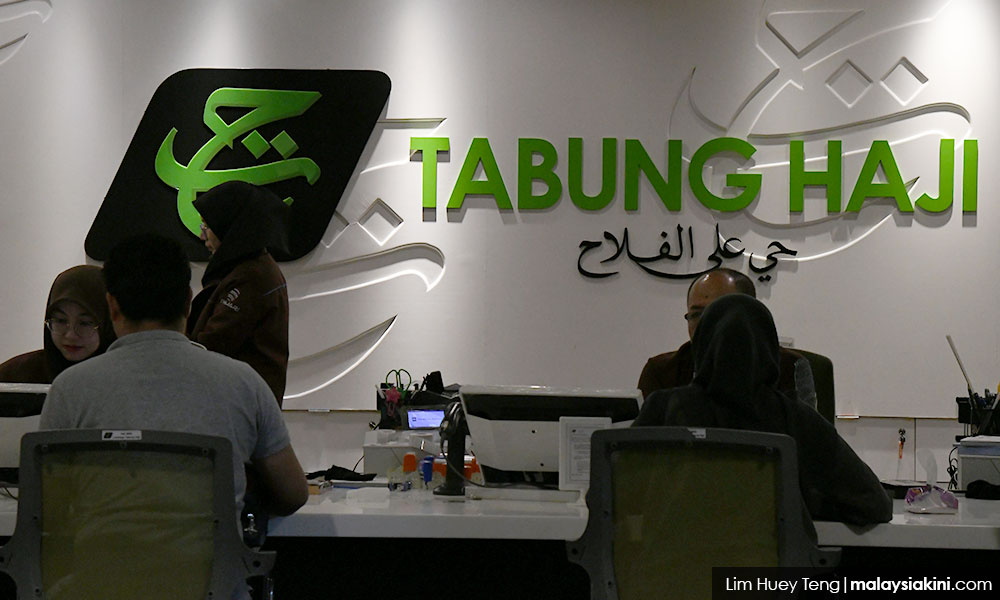
In today’s political chaos, we need a Napoleon with the heart of Socrates, the mind of Plato and Cicero, to return. In today’s politics, the Malay masses is the ageing Hang Tuah, blind-obedient, watching Jebat and the King fight over wealth. People are helpless, drained by the hope they held for 60 years. After a year of regime change, hope is slowly turning into yet another period of hopelessness.
In the case of the recent U-turn decision on the Rome Statute, are you justified to pull out of the Rome Statute when one has always wanted to be known as a “Third World warrior”? Aren’t we tired of claims of political conspiracy and coup d’état when the real issue is of no principle and the leaders involved could not make a stand? However dumb and dumber a president is, at least Americans have two terms maximum to suffer. Malaysia?
Let us take seriously the comical North-South Malaysian Cold War brewing. Today’s Pakatan Harapan–Johor government squabble is opening up an exciting dialogue on the role and responsibilities and limits of the monarchy.
The debate on the balance of power, the nature and future of the monarchy, and the growing voice of the people in deciding who is abusing power and what then must the rakyat do – these are demonstrations of a mature Malaysian democracy. Cultivate this wisely, but surely.
The wealthy and the powerful
Wealth and power have intoxicated those who are supposed to make Malaysia a better democracy. Arrogance will be overthrown. Race, religion, and the royalty will no longer be conveniently used as weapons of disharmony when information is set free.
It’s crucial now that our education system be transformed to teach the history of the people more than the history of the monarchy. In the Age of Post-Humanism, The Age of Kings will give way to The Age of Reason and Malay Enlightenment.
Over the decades, the intelligence and rationalism of the Johoreans have been eroded by this sense of false consciousness. Power and wealth held by the display of the sword, gold, and mental and physical enslavement cannot be sustained.
There was never a “protection of Malay rights”. Only a licence and reason to plunder, propped as an absurd symbol of tradition. The 1MDB fiasco and many others swept under the carpet or yet to be uncovered, are testaments to the magnitude of plunder.
Never in my life have I humiliated my mind by kowtowing to any form of modern and traditional authority. Never will. I
I believe Johoreans should be obsessed with books, and not just with football. The latter can be a passage to mind control and mob mentality. Besides, there is no Bangsa Johor. There is only Rakyat Malaysia.
Our goal as a nation is to treat each citizen with equality under the shadow of the Constitution’s supremacy. Young Johoreans, who do not know history, are cemented with fear, football, and false consciousness. Free them!
Thomas Jefferson revisited
Thomas Jefferson, statesman, author, an admirer of the Enlightenment thinkers and, most importantly, the author of the American Declaration of Independence did not want King and Religion to be foundations of the new nation.
In the case of what is happening in the Islamic world, we see chaos. Islam hates hypocrites. So, why do hypocrites appoint themselves as defenders and rulers of Islam?
In difficult cognitive times like these, I seek refuge in the work of, amongst other philosophers, the humanists such as Rousseau, Montesquieu, Voltaire, Diderot. And Marat and Robespierre.
Will we ever get out of this madness? Like Harry Houdini, the escape artist?
This is the question of our times. We are in a black hole.
AZLY RAHMAN is an educator, academic, international columnist, and author of seven books available here. He holds a doctorate in international education development from Columbia University, New York City, and Master’s degrees in six areas: education, international affairs, peace studies communication, fiction and non-fiction writing. He is a member of the Kappa Delta Pi International Honour Society in Education. Twitter @azlyrahman. More writings here.
The views expressed here are those of the author/contributor and do not necessarily represent the views of Malaysiakini.
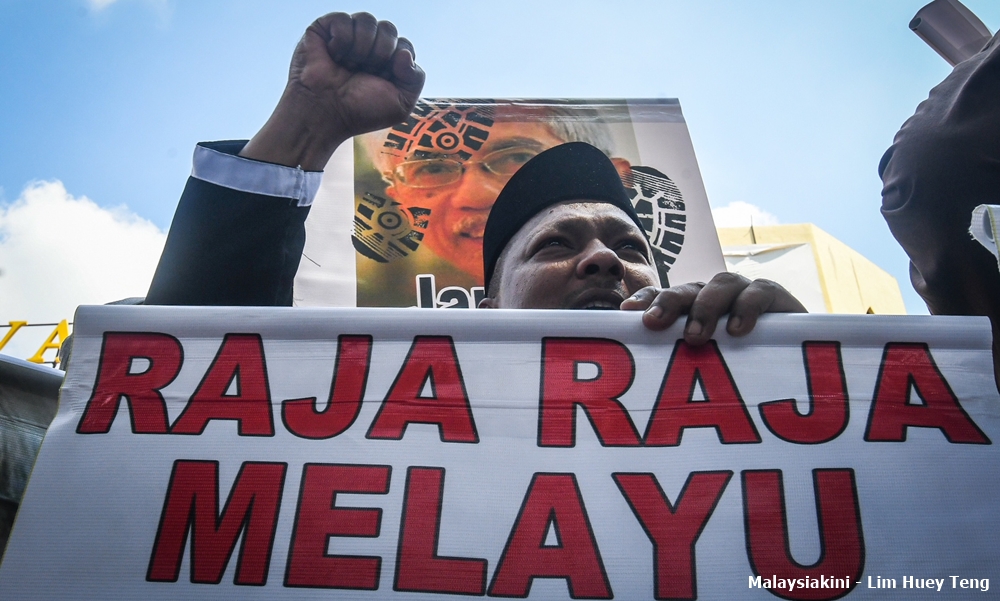
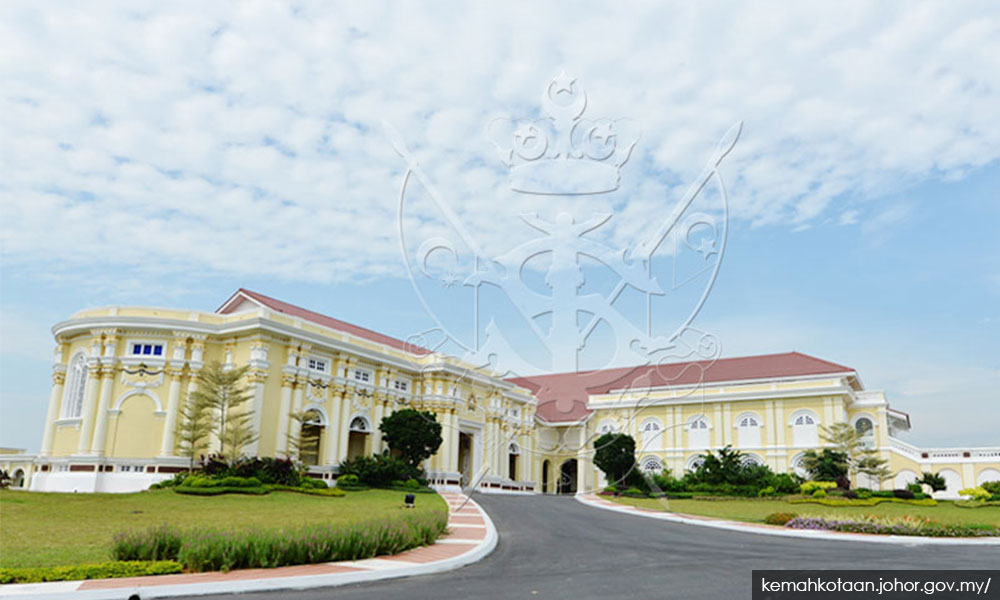
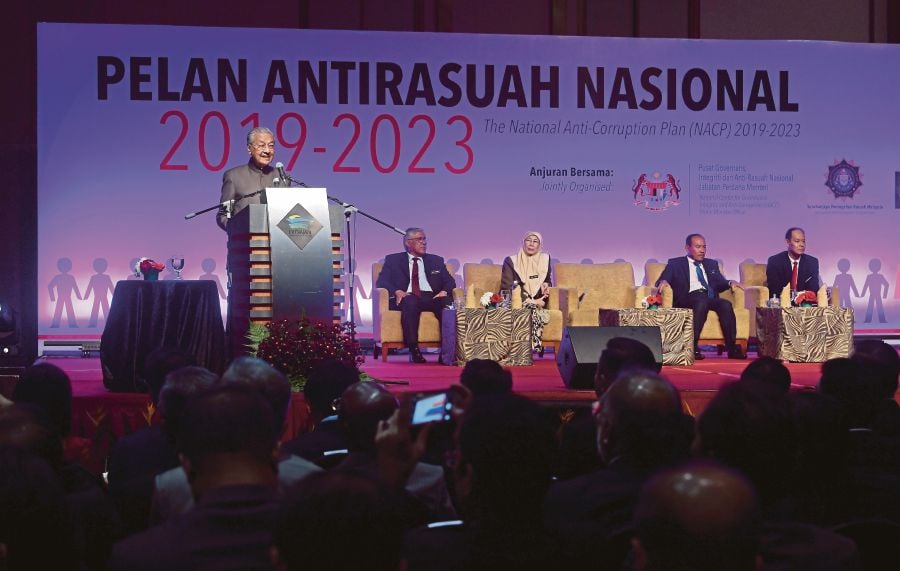



 We each go through our daily grinds, really condoning the little bribery to enforcements, the pandering to houses of power, turning the blind eye when signing off JUST THAT one time in our board or cabinet meetings, not knowing those things have consequences. That we are even unable to discern what we do has consequences, which may or may not directly affect us, is a reflection of the state of our souls, the state of our hearts, the state of the society that enables this. That we think it is fine to seek loopholes not to pay the fine or the tax, or stay silent when wrong happens before us is not a reflection of what is outside, rather it is of what is inside us.
We each go through our daily grinds, really condoning the little bribery to enforcements, the pandering to houses of power, turning the blind eye when signing off JUST THAT one time in our board or cabinet meetings, not knowing those things have consequences. That we are even unable to discern what we do has consequences, which may or may not directly affect us, is a reflection of the state of our souls, the state of our hearts, the state of the society that enables this. That we think it is fine to seek loopholes not to pay the fine or the tax, or stay silent when wrong happens before us is not a reflection of what is outside, rather it is of what is inside us.



